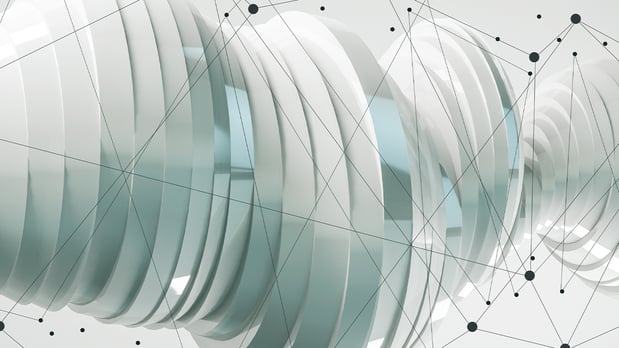
Three Ways Booz Allen Is Using AI to Serve America
Breakthroughs from the VBA to ISS to cancer care
Every day brings new headlines about how artificial intelligence (AI) is leading to major breakthroughs in drug discovery, weather forecasting, and other fields.
Given all the recent media coverage, it may seem like the technology is brand new, but Booz Allen’s team of more than 22,000 technologists has relied on AI and its predecessors for years to make America smarter, faster, and stronger.
Here are just three ways Booz Allen has deployed AI.
1) Detecting Fraud with Close to 100% Accuracy
The Veterans Benefits Administration (VBA) is a consistent target of criminals seeking to steal taxpayer money by posing as veterans and filing false claims. In recent years, the techniques these criminals employ have grown more sophisticated, making it more challenging for the VBA to distinguish legitimate claims from illegal activity.
To protect the government from fraud, Booz Allen built an AI-powered analytical tool to stop payments from being claimed on behalf of veterans and to stop erroneous payments from being made to deceased veterans. The tool uses matching logic to identify fraudulent payments with nearly 100% accuracy. This work has helped VBA thwart criminals and deliver benefits to those who’ve served the nation in uniform.
2) Putting the First Large Language Model in Space
Technology doesn’t always work in remote environments, as anyone who’s lost cell phone service during a road trip knows. But a Booz Allen team proved that it’s possible to make generative AI work in the most remote, resource-constrained environment: space. We collaborated with Hewlett Packard Enterprise (HPE) and the International Space Station (ISS) National Labs to place a large language model (LLM) on the ISS. It is the first generative AI tool to be deployed in space.
Building an LLM capable of operating on the ISS—where solar panels provide energy, overheating computers can create hazards, and devices must be compact—was a technological challenge. But the tool shows that AI can help astronauts complete operational tasks faster and more efficiently. The LLM is designed to speed up maintenance and repair procedures by enabling personnel to search and retrieve information from instruction manuals and operational documents using simple questions.
It’s the first step toward using generative AI for more complex tasks, like performing autonomous spacecraft maneuvers to avoid debris and docking-and-refuel missions, with a reduced need for interaction with ground stations and control centers.
3) Improving Care for Cancer Patients
Helping people with cancer manage pain is a notoriously difficult task—and one of the most important ones. Using AI, Booz Allen and the National Institutes of Health (NIH) are making it easier for researchers and physicians to get a more accurate picture of the pain patients are experiencing.
Our team trained custom AI algorithms on hundreds of video clips in which cancer patients described their pain. The algorithms can extract and analyze multiple data points, from patients’ verbal responses and facial expressions to the temperature of their skin and the sound of their voices. This information tells a fuller story about the pain endured, which can be used to adjust pain management strategies and improve patients’ quality of life.






